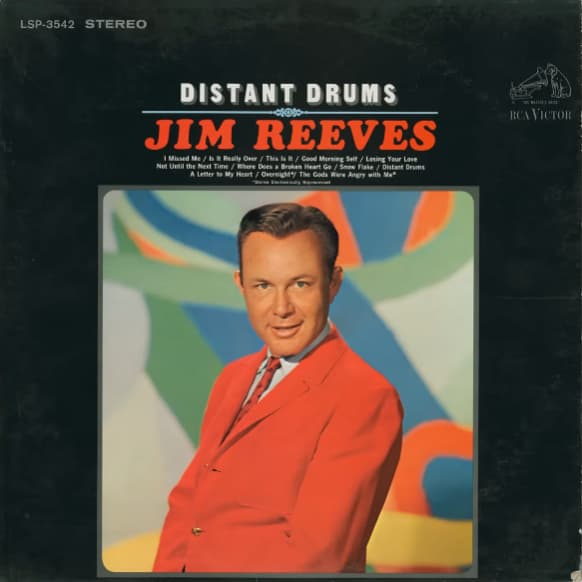
A Haunting Echo of Lost Love: Revisiting the Classic Melancholy of Gentleman Jim
There are certain songs that, the moment the first notes drift from the speaker, transport you back to a specific era—a time of simpler melodies, deeper sentiment, and the unmistakable, velvety baritone of Gentleman Jim Reeves. His classic, “I Missed Me,” is one such hauntingly beautiful artifact from the golden age of Country-Pop crossover. It’s a song that speaks volumes not through a wall of sound, but through a gentle, yet utterly devastating, realization of loss.
Released in 1960 on RCA Victor, “I Missed Me” was an undeniable success, cementing Jim Reeves’s status as a powerhouse in both the country and pop music landscapes. The single reached its peak position of No. 3 on the Billboard Hot Country Singles chart, spending a remarkable 25 weeks on the chart. Its crossover appeal was also evident, as it climbed to No. 44 on the all-genre Billboard Hot 100, proving that the raw, universal ache of heartbreak resonated far beyond the Country confines. Its B-side, a re-recording of his earlier hit “Am I Losing You,” also charted, making the single a dual-sided triumph.
The story behind this enduring track traces back to the pen of legendary songwriter Bill Anderson, who is credited as the composer and lyricist. Anderson has a knack for cutting straight to the heart of everyday human emotion, and in “I Missed Me,” he crafted a narrative that turns the classic breakup song trope on its head. Instead of the typical lament of missing the other person, the narrator in “I Missed Me” is sitting home, wallowing in the knowledge that his former lover is out with someone new. The titular phrase isn’t about him missing her; it’s about him realizing that he is missing himself—his presence, his touch, his unique way of being—from the scene of her new romance. The core lyric, “And I missed me, how I missed me at your house last night,” is a genius stroke of relatable melancholy.
The meaning, delivered in Reeves’s signature ‘Nashville Sound’ style—smooth, orchestral, and sophisticated—is a masterclass in quiet despair. The lyrics paint a vivid, painful picture: he imagines the details of his replacement, the “different car parked in your drive,” the kiss “beneath the porch light,” and wonders if the neighbors “missed me like I missed me.” It’s not a shout of jealousy, but a reflective, almost numb contemplation of a life continuing without him in the center of her world. For listeners of a certain vintage, this quiet, dignified sadness echoes personal memories of watching an essential chapter of life close. It’s a reminder that sometimes, the hardest part of a breakup isn’t losing the other person, but losing the person you were when you were with them—the one who belonged on that lawn, under that porch light. Reeves’s delivery, always measured and warm, lends an air of mature resignation to the words, suggesting a heartbreak too deep for tears, just a gentle, lingering sadness that time can never quite erase. It’s a nostalgic look back at a past self, forever tied to a lost love.